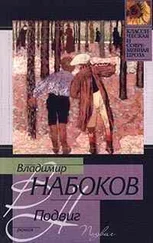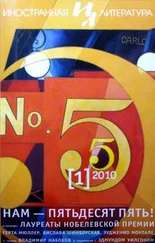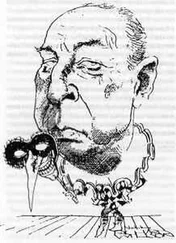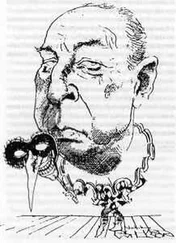Владимир Набоков - Lolita
Здесь есть возможность читать онлайн «Владимир Набоков - Lolita» — ознакомительный отрывок электронной книги совершенно бесплатно, а после прочтения отрывка купить полную версию. В некоторых случаях можно слушать аудио, скачать через торрент в формате fb2 и присутствует краткое содержание. Город: New York, Год выпуска: 1993, ISBN: 1993, Издательство: Knopf Publishing Group, Жанр: Классическая проза, на английском языке. Описание произведения, (предисловие) а так же отзывы посетителей доступны на портале библиотеки ЛибКат.
- Название:Lolita
- Автор:
- Издательство:Knopf Publishing Group
- Жанр:
- Год:1993
- Город:New York
- ISBN:0679410430
- Рейтинг книги:3.5 / 5. Голосов: 2
-
Избранное:Добавить в избранное
- Отзывы:
-
Ваша оценка:
- 80
- 1
- 2
- 3
- 4
- 5
Lolita: краткое содержание, описание и аннотация
Предлагаем к чтению аннотацию, описание, краткое содержание или предисловие (зависит от того, что написал сам автор книги «Lolita»). Если вы не нашли необходимую информацию о книге — напишите в комментариях, мы постараемся отыскать её.
Lolita — читать онлайн ознакомительный отрывок
Ниже представлен текст книги, разбитый по страницам. Система сохранения места последней прочитанной страницы, позволяет с удобством читать онлайн бесплатно книгу «Lolita», без необходимости каждый раз заново искать на чём Вы остановились. Поставьте закладку, и сможете в любой момент перейти на страницу, на которой закончили чтение.
Интервал:
Закладка:
One of his former employees, the scion of a distinguished family, suggested I spend a few months in the residence of his impoverished cousins, a Mr. McCoo, retired, and his wife, who wanted to let their upper story where a late aunt had delicately dwelt. He said they had two little daughters, one a baby, the other a girl of twelve, and a beautiful garden, not far from a beautiful lake, and I said it sounded perfectly perfect.
I exchanged letters with these people, satisfying them I was housebroken, and spent a fantastic night on the train, imagining in all possible detail the enigmatic nymphet I would coach in French and fondle in Humbertish. Nobody met me at the toy station where I alighted with my new expensive bag, and nobody answered the telephone; eventually, however, a distraught McCoo in wet clothes turned up at the only hotel of green-and-pink Ramsdale with the news that his house had just burned downpossibly, owing to the synchronous conflagration that had been raging all night in my veins. His family, he said, had fled to a farm he owned, and had taken the car, but a friend of his wife’s, a grand person, Mrs. Haze of 342 Lawn Street, offered to accommodate me. A lady who lived opposite Mrs. Haze’s had lent McCoo her limousine, a marvelously old-fashioned, square-topped affair, manned by a cheerful Negro. Now, since the only reason for my coming at all had vanished, the aforesaid arrangement seemed preposterous. All right, his house would have to be completely rebuilt, so what? Had he not insured it sufficiently? I was angry, disappointed and bored, but being a polite European, could not refuse to be sent off to Lawn Street in that funeral car, feeling that otherwise McCoo would devise an even more elaborate means of getting rid of me. I saw him scamper away, and my chauffeur shook his head with a soft chuckle. En route, I swore to myself I would not dream of staying in Ramsdale under any circumstance but would fly that very day to the Bermudas or the Bahamas or the Blazes. Possibilities of sweetness on technicolor beaches had been trickling through my spine for some time before, and McCoo’s cousin had, in fact, sharply diverted that train of thought with his well-meaning but as it transpired now absolutely inane suggestion.
Speaking of sharp turns: we almost ran over a meddlesome suburban dog (one of those who like in wait for cars) as we swerved into Lawn Street. A little further, the Haze house, a white-frame horror, appeared, looking dingy and old, more gray than whitethe kind of place you know will have a rubber tube affixable to the tub faucet in lieu of shower. I tipped the chauffeur and hoped he would immediately drive away so that I might double back unnoticed to my hotel and bag; but the man merely crossed to the other side of the street where an old lady was calling to him from her porch. What could I do? I pressed the bell button.
A colored maid let me inand left me standing on the mat while she rushed back to the kitchen where something was burning that ought not to burn.
The front hall was graced with door chimes, a white-eyed wooden thingamabob of commercial Mexican origin, and that banal darling of the arty middle class, van Gogh’s “Arlsienne.” A door ajar to the right afforded a glimpse of a living room, with some more Mexican trash in a corner cabinet and a striped sofa along the wall. There was a staircase at the end of the hallway, and as I stood mopping my brow (only now did I realize how hot it had been out-of-doors) and staring, to stare at something, at an old gray tennis ball that lay on an oak chest, there came from the upper landing the contralto voice of Mrs. Haze, who leaning over the banisters inquired melodiously, “Is that Monsieur Humbert?” A bit of cigarette ash dropped from there in addition. Presently, the lady herselfsandals, maroon slacks, yellow silk blouse, squarish face, in that ordercame down the steps, her index finger still tapping upon her cigarette.
I think I had better describe her right away, to get it over with. The poor lady was in her middle thirties, she had a shiny forehead, plucked eyebrows and quite simple but not unattractive features of a type that may be defined as a weak solution of Marlene Dietrich. Patting her bronze-brown bun, she led me into the parlor and we talked for a minute about the McCoo fire and the privilege of living in Ramsdale. Her very wide-set sea-green eyes had a funny way of traveling all over you, carefully avoiding your own eyes. Her smile was but a quizzical jerk of one eyebrow; and uncoiling herself from the sofa as she talked, she kept making spasmodic dashes at three ashtrays and the near fender (where lay the brown core of an apple); whereupon she would sink back again, one leg folded under her. She was, obviously, one of those women whose polished words may reflect a book club or bridge club, or any other deadly conventionality, but never her soul; women who are completely devoid of humor; women utterly indifferent at heart to the dozen or so possible subjects of a parlor conversation, but very particular about the rules of such conversations, through the sunny cellophane of which not very appetizing frustrations can be readily distinguished. I was perfectly aware that if by any wild chance I became her lodger, she would methodically proceed to do in regard to me what taking a lodger probably meant to her all along, and I would again be enmeshed in one of those tedious affairs I knew so well.
But there was no question of my settling there. I could not be happy in that type of household with bedraggled magazines on every chair and a kind of horrible hybridization between the comedy of so-called “functional modern furniture” and the tragedy of decrepit rockers and rickety lamp tables with dead lamps. I was led upstairs, and to the leftinto “my” room. I inspected it through the mist of my utter rejection of it; but I did discern above “my” bed Ren Prinet’s “Kreutzer Sonata.” And she called that servant maid’s room a “semi-studio”! Let’s get out of here at once, I firmly said to myself as I pretended to deliberate over the absurdly, and ominously, low price that my wistful hostess was asking for board and bed.
Old-world politeness, however, obliged me to go on with the ordeal. We crossed the landing to the right side of the house (where “I and Lo have our rooms”Lo being presumably the maid), and the lodger-lover could hardly conceal a shudder when he, a very fastidious male, was granted a preview of the only bathroom, a tiny oblong between the landing and “Lo’s” room, with limp wet things overhanging the dubious tub (the question mark of a hair inside); and there were the expected coils of the rubber snake, and its complementa pinkish cozy, coyly covering the toilet lid.
“I see you are not too favorably impressed,” said the lady letting her hand rest for a moment upon my sleeve: she combined a cool forwardnessthe overflow of what I think is called “poise”with a shyness and sadness that caused her detached way of selecting her words to seem as unnatural as the intonation of a professor of “speech.” “This is not a neat household, I confess,” the doomed ear continued, “but I assure you [she looked at my lips], you will be very comfortable, very comfortable, indeed. Let me show you the garden” (the last more brightly, with a kind of winsome toss of the voice).
Reluctantly I followed her downstairs again; then through the kitchen at the end of the hall, on the right side of the housethe side where also the dining room and the parlor were (under “my” room, on the left, there was nothing but a garage). In the kitchen, the Negro maid, a plump youngish woman, said, as she took her large glossy black purse from the knob of the door leading to the back porch: “I’ll go now, Mrs. Haze.” “Yes, Louise,” answered Mrs. Haze with a sigh. “I’ll settle with you Friday.” We passed on to a small pantry and entered the dining room, parallel to the parlor we had already admired. I noticed a white sock on the floor. With a deprecatory grunt, Mrs. Haze stooped without stopping and threw it into a closet next to the pantry. We cursorily inspected a mahogany table with a fruit vase in the middle, containing nothing but the still glistening stone of one plum. I groped for the timetable I had in my pocket and surreptitiously fished it out to look as soon as possible for a train. I was still walking behind Mrs. Haze though the dining room when, beyond it, there came a sudden burst of greenery”the piazza,” sang out my leader, and then, without the least warning, a blue sea-wave swelled under my heart and, from a mat in a pool of sun, half-naked, kneeling, turning about on her knees, there was my Riviera love peering at me over dark glasses.
Читать дальшеИнтервал:
Закладка:
Похожие книги на «Lolita»
Представляем Вашему вниманию похожие книги на «Lolita» списком для выбора. Мы отобрали схожую по названию и смыслу литературу в надежде предоставить читателям больше вариантов отыскать новые, интересные, ещё непрочитанные произведения.
Обсуждение, отзывы о книге «Lolita» и просто собственные мнения читателей. Оставьте ваши комментарии, напишите, что Вы думаете о произведении, его смысле или главных героях. Укажите что конкретно понравилось, а что нет, и почему Вы так считаете.









